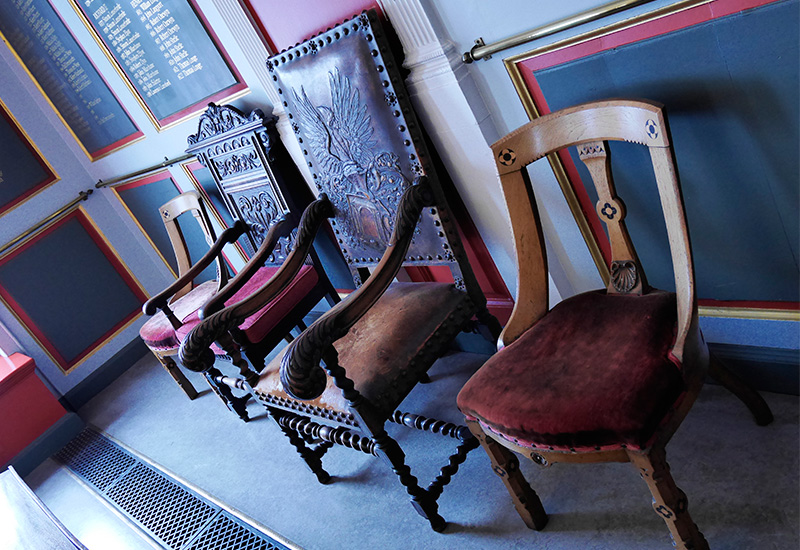If the number of people standing for local office in parish and district councils is a guide to the state of democracy in our area, then we might, justifiably, be disappointed. It became apparent, looking at the list of parish nominations in the Rother area, that this is no battleground, except as a Parliamentary constituency where there are five candidates wooing our crosses in the polling booths on May 7.
It is not possible to predict the outcome in Hastings and Rye. Amber Rudd, like many an MP in a marginal constituency, has worked to impress during her five-year term. Perhaps this situation plays best for the electorate. If you lived in a constituency where a donkey wearing the right colour rosette could still win a place on the green benches of the Commons, then the MP doesn’t have to fret about the next election. But not here. Rudd’s majority in 2010 was less than 2,000. On that occasion she squeezed past Labour’s Michael Foster. But five years of Coalition austerity might see a swing in the other direction – to Sarah Owen, the young Labour candidate. Some Tory faithful I’ve spoken to, however, feel that the people putting Rudd under most pressure are members of her own party serving on Rother and East Sussex councils.
Carl Maynard, Tory leader of Rother, has twice been on the receiving end of a public rebuke from Kris Hopkins, the Conservative Minister for Local Government. The minister’s reprimands and Maynard’s replies are all to be found in our Opinions section.
The inner cabinet of the county council did not help Rudd either by overruling the will of the full council and implementing a round of cuts in bus subsidies. Rudd had urged the county to resist, to remember rural citizens who do not have cars and who rely on public transport. Will that come back to bite? We shall see. Also to be seen: the small party effect of the Greens and UKIP which could make life just as tricky for Nick Perry, the Lib-Dem candidate who, like Rudd, stood in 2010. May 8 will be an interesting day.
But democracy at the grass roots looks to interest us less.
Michael Miller, chairman of Iden Parish Council and chairman of the trustees of Rye Art Gallery, wrote to Trevor Leggo, the chief executive of the Rother Association of Local Councils, to lament the lack of parish council candidates. Out of 42 parishes there are contests, he pointed out, in just six of them. Nineteen councils “have not even got the full allocation of councillors”.
He went on: “Camber, an area in dire need of good governance, could only muster two nominations for seven places. Rye, which is supposed to be a hotbed of discontent and is always pleading for greater autonomy, could only find 17 candidates for 16 places – four of whom were political nominees. Winchelsea also appears to have had very little involvement, which frankly is surprising.
“In all there were 260 vacancies and only 227 candidates. It is very sad that so little interest is being taken by the Rother residents and clearly there are many reasons, probably the main one being the amount of personal commitment that goes into being a parish councillor. It is also apparent that very few, if any, younger people are becoming involved. It is disappointing that here in Iden all the candidates are retired and represent what I would call the ‘better-off’ part of the village. It is also very clear that some councils are far too small and there is a case for merging some – for instance Iden managed to find its full complement but nearby Playden and Rye Foreign, with very tiny electorates, have in recent years never had sufficient numbers.”
Towards the end of his email to Leggo, Miller suggested that the way Rother handled the nomination process might have contributed to the low number of candidates. Nomination papers had to be taken “personally to Bexhill so they could be checked there”.
“We can’t trust the post,” was the reason Bexhill gave him, he told me. For people in the eastern part of the district, that process – travelling and awaiting checks – involved a lot of time. “For me this took four hours door to door.”
Miller’s final remark will resonate with many: “For someone who feels that local democracy and involvement is important, these results are very discouraging.”
Parliamentary candidates for Hastings and Rye 2015
Jake Bowers, Green
Andrew Michael, UKIP
Sarah Owen, Labour
Nick Perry, Lib-Dem
Amber Rudd, Conservative
2010 election result
Amber Rudd, Conservative, 20,468 votes – 41.1%
Michael Foster, Labour, 18,475 – 37.1%
Nick Perry, Lib-Dem, 7,825 – 15.7%
Anthony Smith, UKIP, 1,397 – 2.8%
Nick Prince, BNP, 1,310 – 2.6%
Rod Bridger, English Dems, 339 – 0.7%
Con maj 1,993 or 4%
Turnout 50,464 – 64.67%
* District council candidates – see At last, a scrap
* Parish council candidates – see It’s no contest
Photo: Tony Nunn



